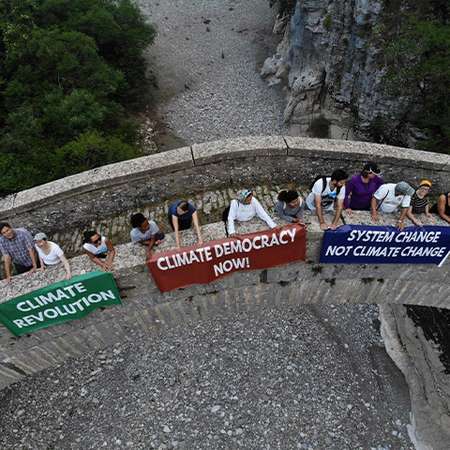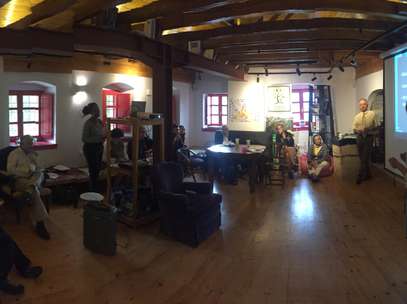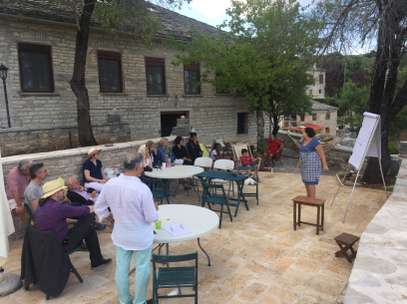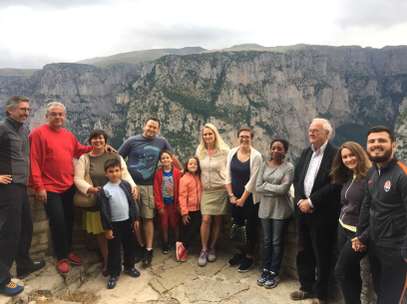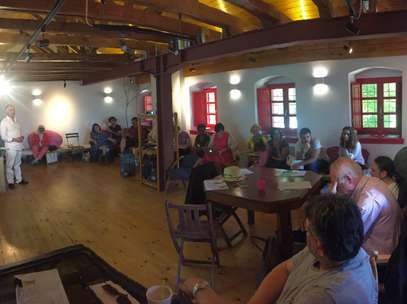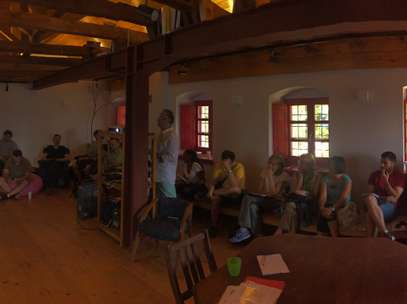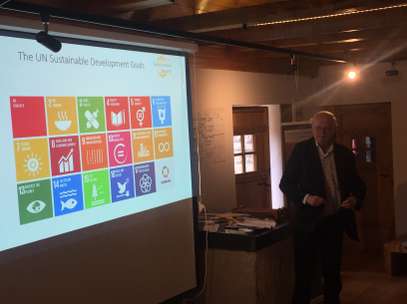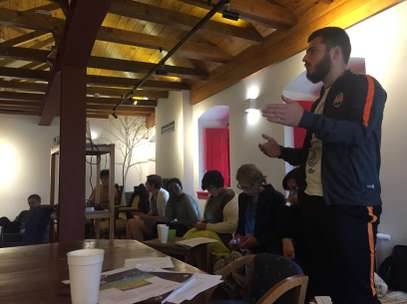The purpose of the meeting was to contribute to the emergence of the hitherto dubious nature of the rights to the natural environment in terms of international law, as a right of the global citizen, especially in the light of climate change and the international effort to address it. The meeting was kindly sponsored by the United Nations Center for Constitutional Research (CUNCR).
This year's theme was inspired by recent UN resolutions, both on global sustainable development around the world and the historic Paris decision to tackle climate change decisively. A team of 20 scientists, University Professors, students and field workers, of different ethnicities, religions, specialties and ages, from civil society, met for a week at this unique crossroads of thought, nature, practice, spirit and inspiration.
In the final conclusions that we adopted in a participatory way, we found that
Climate change is a real problem and we are approaching the point of no return. We must therefore act urgently to address the adverse effects of global warming. Climate change is leading to dangerous situations, as has been shown by many powerful examples, and is likely to lead to deep insecurity and war if the International Organizations are not in a position and adequately equipped to prevent this global problem. The burden of climate change is not evenly distributed, especially in Africa and parts of Asia. International human rights law has the potential to offer solutions to the victims of climate change, but the framework needs to be strengthened. The environment must be recognized as a fundamental right, not only locally but also globally.
Effective and targeted climate financing can help countries most affected by climate change to take the lead in adaptation and sustainable development. To support these efforts, global financial resources must be diverted from the continued development of nuclear weapons. Energy transition is key to the fight against climate change. Technology is also vital.
At the state level, having adopted the first strict legislation on climate change in 2008, the United Kingdom has offered the world a significant opportunity to learn from its successes and failures. Overall, a federal-style institutional arrangement that places significant responsibility on local action can help us properly manage the challenge of climate change. One issue that brought us all to agreement on the achievement of climate justice was the elaboration of an explicitly recognized right to the environment at the international level. Such a right could be exercised by the United Nations, through the strengthening of the UN and the recognition of individual and not just state rights in the environment.
 8°C
8°C
